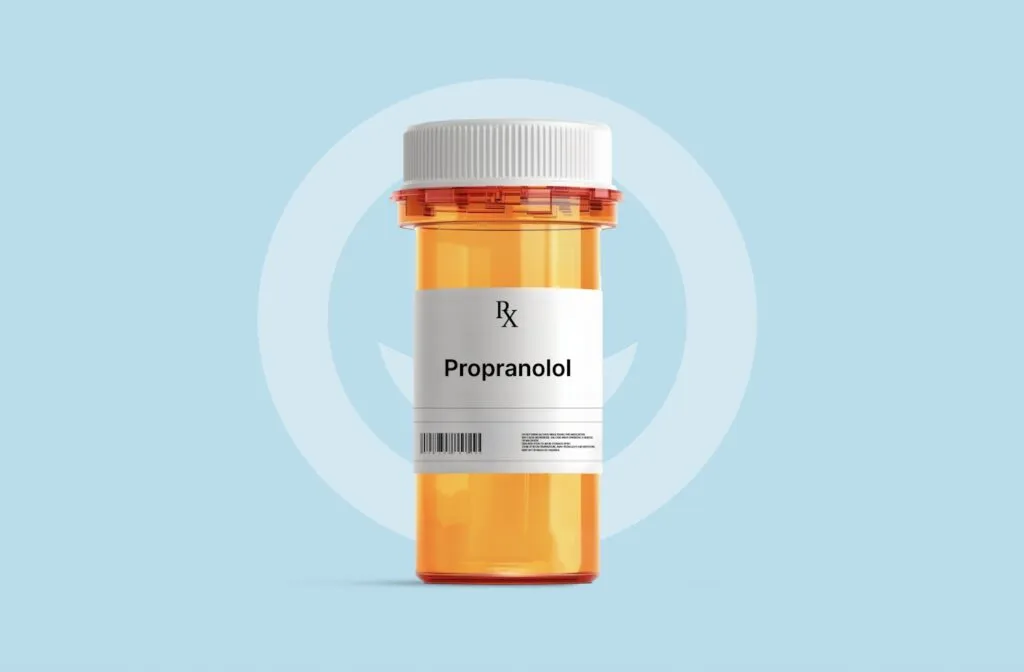Propranolol is a beta blocker first approved by the FDA in 1967 to treat heart conditions and high blood pressure. Today, many clinicians also prescribe it off-label for short-term, situational anxiety because it calms the body’s stress response.
When anxiety surges, your body’s “fight-or-flight” system kicks in – heart racing, hands shaking, chest tightening. Propranolol works by calming these symptoms, slowing the heart rate and lowering blood pressure.
That relief can make it easier to get through moments like:
By quieting the body’s fear signals, propranolol often helps quiet the mind too, creating a positive cycle of calm and confidence.

Unlike benzodiazepines such as Xanax, Klonopin, or Valium, propranolol is not addictive and is not a controlled substance.
Because it works on the body’s physical stress response rather than the brain’s reward pathways, propranolol does not carry the same risk of dependence. This makes it a safer option for people who want short-term relief during specific situations without the risks associated with habit-forming medications. Some people compare propranolol to antidepressants like Zoloft, which work differently and are used for ongoing anxiety or depression.

Propranolol is often used by people who experience anxiety in specific situations rather than all the time. It may be helpful if anxiety shows up primarily as physical symptoms — such as a racing heart, shaking, or shortness of breath — during events like presentations, performances, or important meetings.
It’s typically used as an “in the moment” option rather than a daily medication and works best when paired with other forms of support, such as therapy or stress-management skills. If you’re unsure whether what you’re experiencing is stress, anxiety, or something else, a short quiz can help clarify what kind of support might be useful.
In the past year, propranolol – a decades-old medication – has been making headlines far outside of medical journals. From Wall Street Journal coverage to red carpet shout-outs and even podcast merch, propranolol has become something of a cultural talking point. Influencers, performers, and everyday people are sharing how the medication helps them manage stage fright, social anxiety, or big life moments like weddings.
At Eleanor Health, we think it’s important to join this conversation. When a medication starts trending in popular culture, prescriptions often rise. That can be a good thing when stigma is reduced and more people feel comfortable asking for help.
Propranolol isn’t right for everyone. People with certain heart, blood pressure, or breathing conditions should use caution, which is why a quick health history and vitals check with your provider is important.
At Eleanor Health, we see propranolol as a valuable “in the moment” tool — one that works best when paired with a broader approach to healing, including:
It’s encouraging to see mental health tools like propranolol being talked about openly in mainstream media and even pop culture. That kind of visibility helps reduce stigma and makes it easier for people to ask for support.
It’s not a cure-all, no single pill ever is, but it can provide the immediate relief that helps people show up as their best selves in life’s big moments.
At Eleanor Health, our mission is to help people find the tools that work for them – whether that’s propranolol, therapy, peer support, or a combination – so they can feel better today and build recovery for a lifetime.